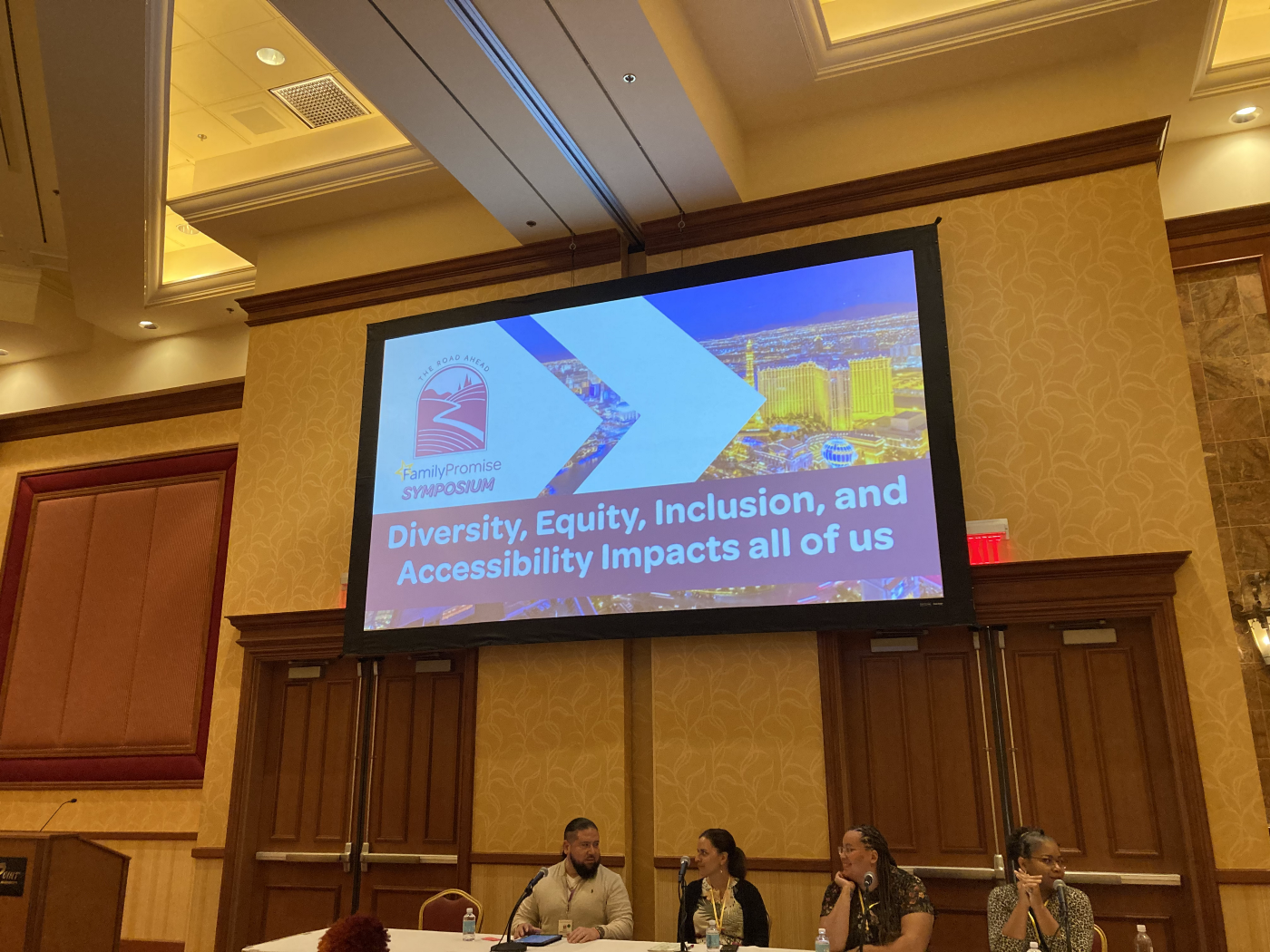This article is by Mitch Petit-Frere, Director of Brand and Marketing at Family Promise National.
–
I can’t stop thinking about the Diversity, Equity, Inclusion, and Accessibility (DEIA) panel at Family Promise’s Las Vegas Symposium.
After the moderator went through her list of questions for the panelists, she opened the floor to audience members for Q&A. One question stuck out in particular. It was a question marked by personal experience and precluded with context.
The audience member explained how she is often assumed to be a program client when she engages with volunteers at her Affiliate’s office. There wasn’t any anger or disappointment in her voice as she recalled her experiences. She even said, “It’s cool,” a few times, signaling she didn’t want to exhibit offense at the mischaracterization of her status.
The person asking the question was a Black woman.
In other words, a Black nonprofit case manager has been assumed to be a person experiencing homelessness multiple times by a majority white volunteer population.
After relaying her experience, she asked the panel how to navigate similar situations that will probably occur again in the future. Jeff Armstrong answered the question by articulating his own experiences of mischaracterization. He has been assumed to be a janitor and was even ignored by a member of a community organization at a Family Promise event until it was made clear he wasn’t just a random person there, but an integral member of Family Promise.
Jeff is the Executive Director at Family Promise of the Midlands in Columbia, South Carolina. He’s also a person of color leading an organization that has a majority white volunteer population and donor base.
After the panel concluded, attendees were sent to breakout rooms for further discussion. The table I was sat at only had three people (including me), which meant we had ample time to share our thoughts. We went through a list of pre-described questions but eventually went off course onto other topics.
At one point, one of my table mates said he expected the DEIA panel to focus on Family Promise guests of color, and how they’re affected by stereotypes, micro aggressions, and outright racism. He never realized the discussion would — or even could — also be centered around Family Promise staff members.
His realization was solid proof of the necessity of the DEIA panel. The panel unlocked an understanding that the nasty remnants of structural racism still plague realms of work that are assumed to be moral, forward-thinking, and inclusive.
At Family Promise, we know that people of color, Black people in particular, experience homelessness at disproportionate rates. But we also understand that those same disproportionate rates have enabled sinister stereotypes to target the very people who are working to foster equity.
After all, the full name of the panel was: “Diversity, Equity, Inclusion, and Accessibility Impacts All of Us.”

